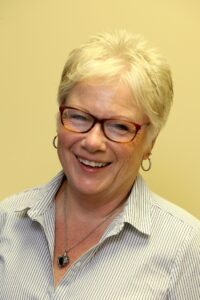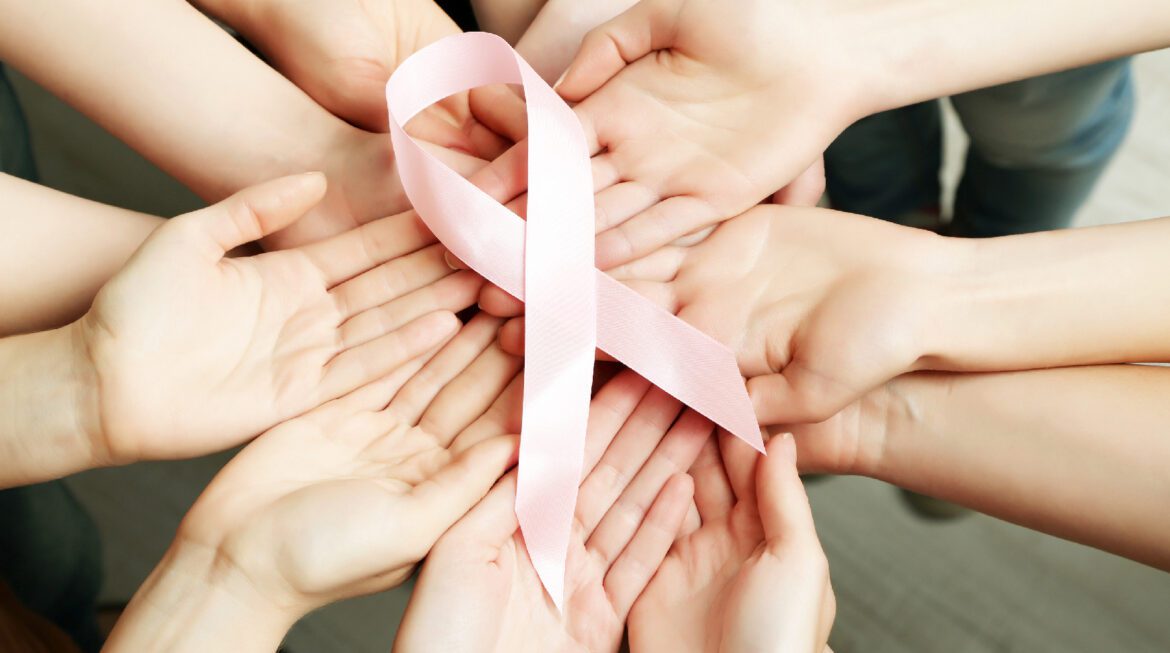On September 19, 2008, I heard the words, “You have breast cancer.” My first question was, “Am I going to die?” The answer, “No, not from this!”
My diagnosis was DCIS (Ductal Carcinoma in Situ). Luckily, the cancer was contained, meaning it had not spread beyond the breast ducts.
OK, good, I thought. After discussions with my surgeon, a lumpectomy and radiation treatments were the clinical course of action.
 I said to myself, “I can do this.” But as soon as I accepted the diagnosis and this course of action, I learned there were new concerns. An MRI showed there was a more aggressive type of cancer in the other breast. So, the lumpectomy had now evolved into a bilateral mastectomy, plus chemotherapy.
I said to myself, “I can do this.” But as soon as I accepted the diagnosis and this course of action, I learned there were new concerns. An MRI showed there was a more aggressive type of cancer in the other breast. So, the lumpectomy had now evolved into a bilateral mastectomy, plus chemotherapy.
I quickly found a reconstructive surgeon, had my chemotherapy port placed, all while trying to become both physically and mentally prepared for this upcoming procedure.
After surgery, my first question was whether my lymph nodes were clear… meaning, had the cancer metastasized into them? The surgeon said, “Yes, it appears so.”
The report came back that there were “micro mets” in two of my lymph nodes (microscopic cells that had metastasized from the original cancer tumor). Thus, the entire process was about to change, yet again.
In the meantime, I had three diverse types of chemotherapy, every three weeks, for six rounds. I had to wait until my blood counts were normal to have the expanders surgically exchanged for breast implants.
After six months, I said good-bye to those horribly uncomfortable tissue expanders, and hello to my new implants. What a relief! I had my “new girls,” and my hair was growing back!
During this difficult period, I began noticing other women who were going through the same breast cancer treatment protocols as me. They were also trying to make decisions and understand the complicated clinical process by themselves. We were all struggling, together, but alone. Nobody was communicating what to expect, what was coming next, and most importantly, how we were going to feel.
I was truly fortunate my husband and three daughters were standing guard 24 hours a day, 7 days a week. I remember on my first day of chemotherapy, the nurse said she wished she had more time to explain the chemotherapy treatment process. A lady sitting next to me said I would experience a “sunburned” face from the steroids, but that was all I had to go on. I learned later (after extensive reading) that I needed to take initiative with nausea drugs for the chemotherapy treatments.
After surgery, I had post-surgical drains sutured in my armpits hanging down to my knees, with no way to safely hold them. I lacked knowledge on the breast expanders; they felt hard, numb, and I had to be careful with the temperature while showering.
What I was understanding, day by day, was this entire process would have been much easier if I had guidance; a type of support group or navigator.
With that said, I knew, after what I had gone through, along with the many insights and lessons I had learned (without direction), I could pay it forward and help others by creating a breast cancer outreach and support program.
My first call was to a cancer organization who said I would need to be out of treatment for one year before I could volunteer for them.
My vision was to assemble a medical team to better communicate how to best prepare cancer patients to get through their diagnosis and treatment successfully.
My thought process was this: We as women can do anything if we have a plan. I just needed to help those fighting cancer with that plan.
With my team, in 2010 we started Breast Friends of Florida, which is now called Driven By Heart. To date, we have assisted over 3,000 women with their breast cancer journey. We do everything from helping to assemble their clinical team, to showing them the importance of being their own advocate. We host extensive support groups as well as one-on-one meetings so they can ask questions privately. We have several surgeons, oncologists, and therapists who are part of our team who are available for advice. Having medical professionals available helps decrease stress and feelings of vulnerability.
We offer support bags that include a book on breast cancer written by medical professionals; a wedge pillow to help with swelling and drainage after surgery, surgical drain holders, a dry brush to help stimulate the lymph system, bandanas, blankets for chemotherapy (because you have sensitivity to the cold treatment rooms), and organic products to help with skin challenges from radiation treatments. We also offer items for dry mouth, chemo cough, along with unscented organic deodorant and a shirt to protect them while showering.
This year we are excited to expand our support offerings to include a surgical bra, and we are thrilled to offer free mammogram screenings for uninsured and under-insured women.
The bottom line is this: When you go through breast cancer, it changes you. You quickly learn what is important, and what is not. You realize there is life before breast cancer, and there is life after breast cancer. I am one of the lucky ones. I still have a life, and I am going to make the most of it by mentoring and supporting these women.
Driven By Heart is a comprehensive team of volunteers, medical professionals, and breast cancer survivors who are here to hold the hands of the newly diagnosed, while walking them through this unfortunate diagnosis.
For more information, visit http://drivenbyheart.org

